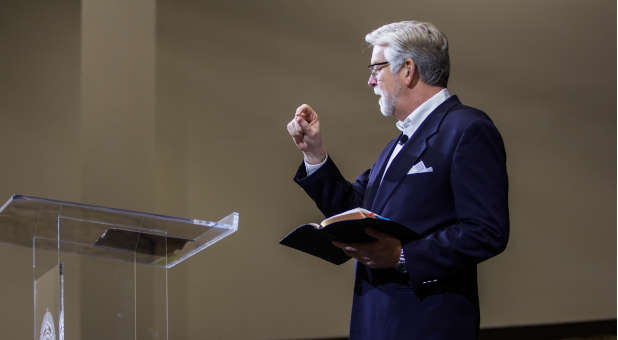13 Traits of ‘Orphan Spirit’ Leaders
One of the greatest needs in the body of Christ is to release the spirit of sonship (Rom. 8:15). Since the nation of Israel and the church were modeled after the biblical family structure, its leaders were supposed to function more as spiritual parents than corporate executives.
The apostle Paul said that we have only a few fathers, even though we have numerous teachers (1 Cor. 4). Those who have not been properly fathered in the natural, tend to walk with an “orphan spirit.” Unfortunately, many leaders in the church and marketplace still function emotionally with an orphan spirit even though they have been adopted as sons into the family of Father/God.
Leaders with orphan spirits are limited in their capacity to make disciples and maximize their kingdom purpose. I write this article to shed light on this vital subject so leaders can become more self-aware and go to the Lord and others to be healed.
The following are 13 traits of orphan spirit leaders:
1.They are hyper-sensitive. Those with an orphan spirit walk around with a spirit of rejection. Hence, they are hyper-sensitive and unconsciously assume that people are against them. Consequently, they are easily offended and overreact to minor infractions and experience continual misunderstandings when interfacing with others.
2.They don’t know how to be a spiritual parent. Pastors and all mature leaders in the body of Christ should first and foremost function as spiritual fathers that can nurture young believers (I John 2:12-14). When new people come into the church, they intuitively yearn for spiritual parents who will care for them. Many people are hurt because there is no opportunity presented to them in the church for personal nurture and development. First and foremost, the body of Christ needs its leaders to function as spiritual parents, secondarily, preachers and leaders.
3.They are always in competition with other leaders. The lack of affirmation by a father contributes to an orphan spirit. Those with an orphan spirit are constantly striving to prove themselves to others. Consequently, in their striving, they compete with other gifted leaders (including peers not within their organization).
4.They are driven by a search for significance. Due to the lack of affirmation from a father growing up, those with an orphan spirit are constantly striving to succeed. Hence, they rarely rest because they are on a quest to elevate themselves amongst others so they can feel good about themselves. Orphan spirit leaders are driven more by personal ambition than being led by the Holy Spirit. Hence, it can leave much destruction in their wake as their ambition, rather than the Holy Spirit, motivates and directs their work.
5.They don’t know how to connect emotionally. Orphan spirit leaders may be competent at dispensing tasks to their followers but may be handicapped regarding emotional intelligence. Affirmed sons are better able to connect emotionally with other people since they have already experienced (and developed) an intimate relationship with their heavenly and spiritual father.
6.They do not feel good about themselves. I have observed that even highly accomplished leaders may have low self-esteem. They desperately try to compensate for this self-disdain with their achievements. Some of the most successful people I have ever met were laden with self-hatred. All this is hidden behind looking good physically and having a tremendous public persona, but it comes out in one or more of the traits mentioned in this article.
7.They do not know how to treat others. Leaders with an orphan spirit often mistreat or abuse those under their leadership. This comes out sometimes because of the deep subconscious resentment and anger (from being abandoned by their father) embedded in their soul.
8.They do not interpret reality correctly. I have found that those who carry an orphan spirit interpret everything through the lenses of abandonment, rejection and disappointment. Consequently, they interpret reality differently than other people, which causes others they hurt to think these leaders are either liars or delusional.
9.People are objectified to obtain their goals. Leaders with an orphan spirit often use people for their agenda rather than viewing their leadership assignment as a way to love and empower others.
10.They are always looking for approval and recognition. Those with an orphan spirit have a massive void in their heart that only God can fill. Their pain is so great that they look for temporary (superficial) relief by getting people to notice them so they can receive their accolades. Until and unless they allow the Lord to heal their woundedness, they will live a life seeking the approval of others.
11.They do not know how to submit to spiritual authority. Those with an orphan spirit have a very difficult time understanding how to be a son to another father. Hence, they have difficulty trusting anyone enough to receive correction and genuinely submit to authority and spiritual leadership. I have found that most “lone rangers” are just people with an orphan spirit.
12.They have a difficult time with their own family. Those with an orphan spirit are so driven they often do not keep boundaries. Consequently, they do not know how to relax and spend quality time with their family. Work and accomplishment are always at the center of their life. Also, because they have never been fathered, they do not understand how to be a parent and emotionally connect to their biological and spiritual children. These two issues cause significant friction between spouses as well as the alienation of children.
13.They have a difficult time relating to God as their Father. Those with an orphan spirit either view God as a harsh taskmaster or a distant father who cannot be fully trusted. This is because growing up, they experienced abandonment from an authority figure, transferring this view into their relationship with God. They need a spiritual experience with God that permeates their soul and revolutionizes their view of Father God. Also, they need a spiritual father in their life who will represent God to them and restore their soul.
In conclusion, nobody has been fully healed emotionally on this side of heaven. Every leader, including me, has deep emotional issues and needs continual transformation by God. Hence, there are no perfect marriages, children and leaders (and no perfect churches or organizations).
May the Lord use teachings like this to open our eyes, help us be self-aware and look for Him to bring people, situations and His word to conform our heart, mind and soul into the image of Jesus, the only perfect Son of the Father. {eoa}
Dr. Joseph Mattera is an internationally-known author, consultant and theologian whose mission is to influence leaders who influence culture. He is the founding pastor of Resurrection Church, and leads several organizations, including The U.S. Coalition of Apostolic Leaders and Christ Covenant Coalition. Dr. Mattera is the author of 13 bestselling books, including his latest The Purpose, Power, and Process of Prophetic Ministry, and is renowned for applying Scripture to contemporary culture.




























































